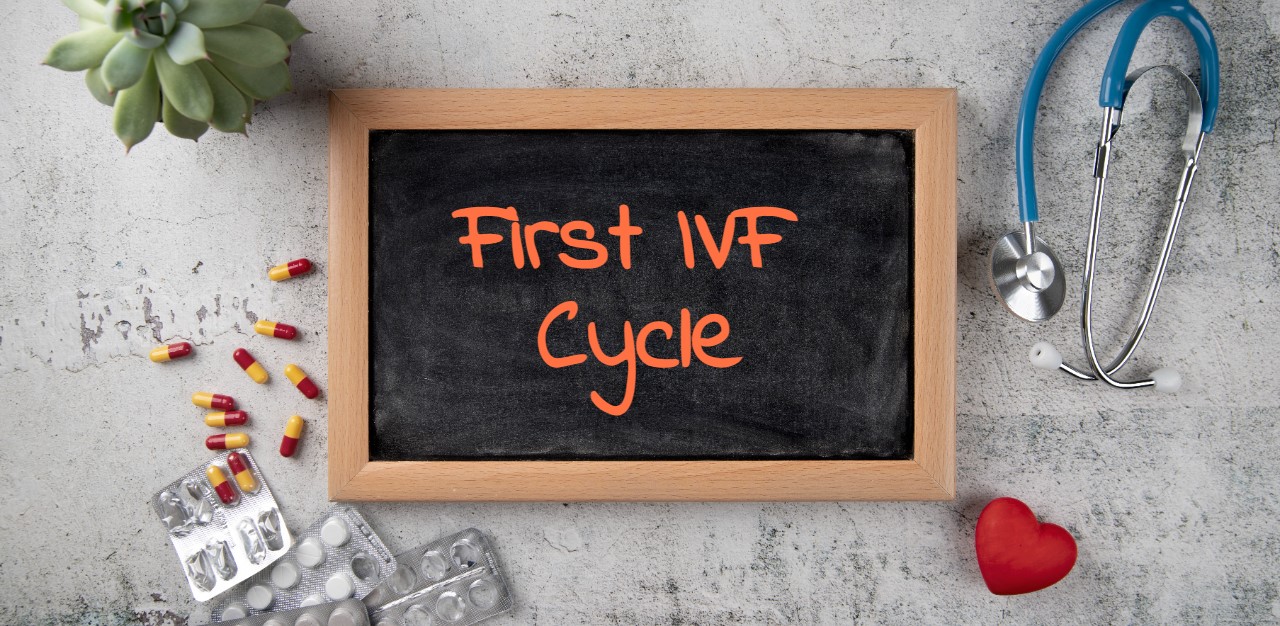Preparing for Your First IVF Cycle: What to Expect


Your first in vitro fertilization (IVF) cycle can be both exciting and intimidating. It’s a significant step toward achieving your dream of starting or expanding your family. you are not alone in this journey; approximately one in every eight women in the world requires assistance to become pregnant. IVF is a technique that involves fertilizing eggs with sperm outside of the body in a laboratory setting before implanting them in the uterus.
As you prepare for, begin, and finish an IVF cycle, you may experience a range of emotions. Anxiety, sadness, and uncertainty are all common emotions.
Here’s what to expect during your first IVF cycle to ensure you’re well-prepared for this journey and how to reduce your anxiety.
Tips Before starting IVF treatment
There are some suggestions for improving the success of IVF and your chances of conceiving. It involves making small lifestyle changes to ensure your best health. Quit smoking, eat a healthy diet, and do yoga or light exercises, for example. BMI is an important factor in IVF, so if you have a high or low BMI, consult with a dietician. Most fertility clinics have dieticians in their IVF packages to help their patients.
- Eat a healthy, well-balanced diet.
- Start taking prenatal vitamins.
- Maintain a healthy weight.
- Stop smoking, drinking alcohol, and recreational drugs.
- Reduce or eliminate your caffeine intake.
Consultation and Evaluation
The first step in preparing for an IVF cycle is to make an appointment with a fertility specialist. During this appointment, your doctor will assess your fertility potential by reviewing your medical history, performing a physical examination, and possibly ordering some tests. Blood work to check hormone levels, an ultrasound to examine your ovaries and uterus, and a semen analysis for your partner are all possible tests.
The initial tests required for IVF can be found in this link.
Developing a Treatment Plan
After gathering all of the necessary information, your fertility specialist will develop a personalized treatment plan tailored to your specific needs. This plan will detail the medications you’ll need to take, the timing of your cycle, and the procedures you’ll need to go through.
Medication Administration and Monitoring
Hormone injections are frequently used in IVF treatment to stimulate the growth of multiple eggs in your ovaries. You will be taught how to self-administer these injections or you may be able to get them at a clinic. You will have regular monitoring appointments throughout the process to track the development of your eggs using ultrasounds and blood tests.
Egg Retrieval
When your eggs have reached the desired size, you will undergo a minor surgical procedure known as egg retrieval. A thin needle is inserted into your ovaries while you are sedated to collect mature eggs. This procedure is usually quick and painless, and you should be able to go home the same day.
Fertilization and Embryo Transfer
after egg retrieval, the collected eggs are fertilized in a laboratory with sperm to create embryos. Following that, the embryos are monitored for a few days before the best one or two are chosen for transfer. Embryo transfer is a simple procedure in which the embryos of your choice are placed into your uterus via a thin catheter. It is frequently painless and does not necessitate anesthesia.
Waiting for Results
You will need to wait about two weeks after the embryo transfer before taking a pregnancy test. As you wait for the results, this period can be stressful. Having a support system in place and engaging in activities that help you relax and reduce stress are essential during this waiting period.
Follow-Up and Next Steps
Congratulations if the pregnancy test shows positive results! You will then set up additional appointments to check on your pregnancy. If the test is negative, it’s necessary to get in touch with your fertility specialist to go over the next step of action and look into any potential treatment plan modifications.
Keep in mind that each IVF journey is different and that success rates can change. It’s important to maintain patience and set reasonable goals for the process. Build a strong support system around you, and when necessary, ask your medical team for advice. Your first IVF cycle can move you one step closer to realizing your dream of parenthood if you are persistent and have the right support.
Here are a few things that you can do to reduce your anxiety about IVF:
- Do your research. The more you know about IVF, the less anxiety you will have. Talk to your doctor, read books and articles, and join online forums.
- Talk to someone you trust. Talking about your feelings can help you to feel less alone and more supported. Talk to your partner, family, friends, or a therapist.
- Take care of yourself. Make sure that you are getting enough sleep, eating healthy foods, and exercising regularly. Taking care of your physical and mental health will help you to cope with the stress of IVF.
- Expect the unexpected. Things don’t always go according to plan with IVF. Be prepared for some surprises and disappointments.
- Have hope. IVF is a very successful treatment for many people. Don’t give up on your dream of having a family.
If you have any questions about the IVF procedure or any other matters, please don’t hesitate to contact our team at IVFTurkey.
References
E.M.E.W. Heijnen and others, What is the most relevant standard of success in assisted reproduction? The next step to improving outcomes of IVF: consider the whole treatment, Human Reproduction, Volume 19, Issue 9, September 2004, Pages 1936–1938, https://doi.org/10.1093/humrep/deh368



